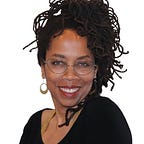Canada-born. Trinidad-raised. How music harmonized my identities.
“If you try to walk over there from here, you could get lost and die,” my new friend Marylynn said. She pointed to the small field separating my house from Goose High School.
During a “white-out,” the snowfall would be so thick that the ground and sky would become one blanket of white. Marylynn cautioned me that every winter someone would wander disoriented for hours, a few feet from their destination.
I understood that experience of dislocation. As a young teen, I’d returned to the land of my birth, after years in the Caribbean. Technically speaking, with the move to Labrador, I was coming home.
Realistically, after a childhood in Trinidad, I had no connection to this land.
Out of tune
Coming from a world surrounded by the sounds of calypso and jazz, I was now in the world of Rush and April Wine.
At Goose High, situated on a military base in Goose Bay, Labrador, cultural orientation was provided by my Grade 9 classmates.
When I stood up as the teacher entered the room, as was the custom in Trinidad’s British school system, Eugene pulled me back into my seat. I was two years ahead of my peers academically and Marylynn coached me to keep that quiet. Sherry Ann introduced me to bowling and “fish-n-brewis.”
She also asked me a strange question. “What is it like to be Black?” Coming from Trinidad’s multi-cultural society, the tragic look on her face was perplexing.
I’d returned to the land of my birth … [but] after a childhood in Trinidad, I had no connection to this land.
I went on to be similarly confused in three more high schools, as my father, a military doctor, was transferred from one base to another.
In this estranged birthplace, race was pinned to my forehead like a badge. Obscenities were hurled at me by a white man from a car, as I walked home from school in one city, or as I walked past a movie lineup in another.
I sensed something missing in the histories I was being told, something stolen, something unsaid, the impact silently embedded.
A constant melody
I have spoken to others who made big relocations as teens. We hovered above the culture arrived at. In this space, only music flew high enough to comfort me.
As a classical guitarist, I knew that while the outside world spun, melody would stay constant. I played the etudes of Fernando Sor for hours — songlines through treacherous terrain.
Parang, with its instrumentation of cuatros and shack shacks, had been my soundtrack for the Christmas season in Trinidad. Valdy with his steel stringed guitars was on my internal playlist in North Bay, Ontario.
The moody cliffs of Labrador are linked to the strains of Gordon Lightfoot. The Mattawa River brings me back to screaming Oowatanite by April Wine with ten other teens as we canoed those waters.
With Lake Ontario on my right, the Caribana Parade streamed towards me, playing the music that I’d left on the island of Trinidad so many years ago.
Watching the revellers, I was transported back to Trinidad, where the most important song of the entire year was the road march. Everyone knew the words and chipped along on parade day.
Carnival culture was valued in our household. My father insisted that my younger brother and I play “a big mas’” and had ornate costumes designed for us by the renowned Fitzgerald De Freitas. The road march that year was Margie by Lord Kitchener.
The sound of home
Song was everywhere in my new-old country. The basement of a church on Huron Street hosted Fat Albert’s Coffee House, an open stage rumoured to have attracted Joni Mitchell and Neil Young in the ’60s. Here, I discovered that with my facility on the guitar, I could craft poems into songs and I fell in amongst the songwriters.
On Wednesday nights, everyone would arrive early to get a number, which determined the order of performers for the night.
Amongst the rabble, a few soon to be well-known voices were developing including Ron Sexsmith, Bob Wiseman, Bob Snider, Kyp Harness and Sam Larkin.
I wrote a bunch of tunes, sorting my worlds through language and melody. I made a record. We all did.
I studied sound engineering and found a job that paid me to listen to the best jazz musicians in the city. I rediscovered the music that had filled my childhood home, jazz and bossa nova. I wandered deeply into Brazilian music, which shares the African roots of all Carnival cultures.
These days, I continue to write using my many voices — poems, essays, articles — crafting an identity out of disparate pieces. The art form that supported me most during the most turbulent flights, however, is music.
Over time, I have come to consider the following: What if home is not a place, but a sound? What if the way home is following the music? What if in the simple act of listening, I have landed?
